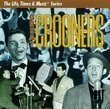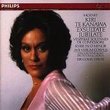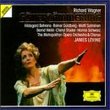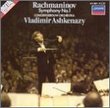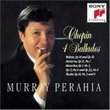| All Artists: Claude Debussy, Jean-Claude Casadesus, Mireille Delunsch, Gérard Théruel, Armand Arapian, Gabriel Bacquier, Hélène Jossoud, Françoise Golfier, Jean-Jacques Doumène, Choeur Régiional Nord/Pas-de-Calais, Orchestre National de Lille-Région Nord/Pas-de-Calais Title: Debussy - Pelléas et Mélisande / Delunsch · Théruel · Arapian · Bacquier · Jossoud · Golfier · Doumène · Casadesus Members Wishing: 0 Total Copies: 0 Label: Naxos Release Date: 7/1/1997 Genre: Classical Style: Opera & Classical Vocal Number of Discs: 3 SwapaCD Credits: 3 UPC: 730099604727 |
Search - Claude Debussy, Jean-Claude Casadesus, Mireille Delunsch :: Debussy - Pelléas et Mélisande / Delunsch · Théruel · Arapian · Bacquier · Jossoud · Golfier · Doumène · Casadesus
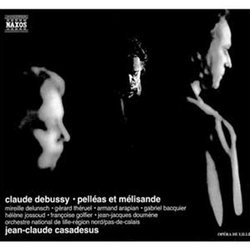 | Claude Debussy, Jean-Claude Casadesus, Mireille Delunsch Debussy - Pelléas et Mélisande / Delunsch · Théruel · Arapian · Bacquier · Jossoud · Golfier · Doumène · Casadesus Genre: Classical
|
Larger Image |
CD DetailsSimilar CDsSimilarly Requested CDs |
CD ReviewsA Gallic masterpiece K. Farrington | Missegre, France | 03/09/2000 (5 out of 5 stars) "This work, to my mind, is one of the most penetrating works that opera has ever produced. The philosopher Hegel in his 'Phenomenology of Spirit' had drawn up a sublation between Being and Nothingness whose synthesis is Becoming. This Becoming is the phenomenal world into which we are tied, as Heraclitus said 'we cannot step into the same river twice'. As sentient beings tied into the Kantian Categories which we cannot go behind them, so we are dependent on the artist to take us beyond the limits of experience. Debussy peers beneath this phenomenal curtain in this magnificent work, penetrating toward the in-itself, and depicts the a priori forms that transcend time and space, suspending our day to day activity to behold the sublime. This splendid CD, at budget price enables the listener to hear this strange sound world stripped of true action that Maurice Maeterlinck had set out in his play and libretto. The everchanging string eddies and woodwind flurries of Debussy's score are at soft half lights and who should know this work more than this Northern Region French ensemble. The soloists are excellent with the exception of Francoise Golfier who plays the child Yniold. In my opinion she overplays her characterisation of naive jeunesse, namely, her childish voice, which tends to grate on the nerves with repeated playing on a CD. She should have underplayed the juvenile style much more for the benefit of the listener. That point excepted, this is a first rate recording and performance that is to be heartily recommended. This work is part of a French response to certain mystical elements in Wagner's 'Tristan' which resonated in certain aspects of the Gallic intellectual makeup. It is sometimes forgotten by us foreigners (although Caesar referred to it in his de Bello Gallico) that the French are made up of three parts of which the Belgae are one. The whole background of this work is of the Belgae, those inhabitants of the sulphurous polders that separate north eastern France from present day Belgium. This less familiar darker and more foggy world is far away from the southern light and sun of Ravel's magical world or Bizet's L'Arlesienne. Debussy produces from the skeins of Maeterlinck's Belgic otherworldliness and mystery a musical world he knew he could never recapture, hence he only produced one opera. He had 'said it all' said Satie who scrapped his own plans for an opera after hearing this. It is easy to figure out why when you become aquainted with this great work. Totally, totally brilliant!" The Death of the French Performing Tradition Christopher Forbes | 11/04/2003 (1 out of 5 stars) "This live performance recording is a crude disaster, easily the worst-sung Pelleas recording ever. Just about everyone over-emotes, perhaps too aware of the microphones. The first complete Pelleas on disc was the wartime Desormiere recording, made in Paris with an all-French cast, many of whom had coached with previous generations of performers going back to the original cast of creators and Debussy himself. Following in that tradition were superlative recordings by Ingelbrecht, Ansermet, and Fournet, excellent versions under Baudo, Jordan and Dutoit, and the Cluytens a bit less satisfactory. Then we started to get international casts, in Ansermet's second (still the best stereo version), Boulez, Carewe, Karajan, Abbado, and most recently, Haitink. In place of the Parisian tradition, we were offered vocal splendor, and sometimes it paid off spectacularly.But this Naxos version offers neither, or perhaps the worst of both. Coarse bawling, leavened neither by finesse nor understanding, nor by vocal accomplishment. Obviously the cord that binds generations of French-born Pelleas performers has snapped. The only internationally-ranked artist here, Gabriel Bacquier, is so past it that it hardly matters what he does.Sometimes a mediocre Naxos recording is bearable if you concentrate real hard on how little you paid for it. But for this sorry travesty, even that doesn't work. The Ansermet stereo version, reissued by Decca/London for even less than the price of the Casadesus, is now the first recommendation." Naxos continues to hit homers! Christopher Forbes | Brooklyn,, NY | 06/11/2002 (4 out of 5 stars) "The great news from this CD is that it is an excellent budget priced version of Debussy's masterpiece. Sound and production values are top notch and the performances are as precise and subtle as you can get with this music. Jean-Claude Casadesus conducts with intelligence and an ear to this atmospheric score. While this CD does not reach the heights of Boulez's classic recording, you can't beat the price. Continued kudos to Naxos for leading the pack in budget priced CDs of real quality and adventure."
|

 Track Listings (6) - Disc #1
Track Listings (6) - Disc #1
